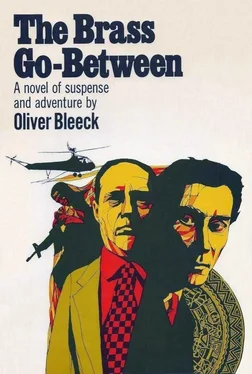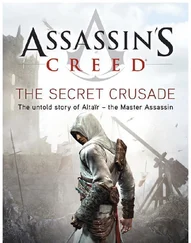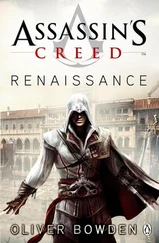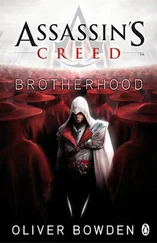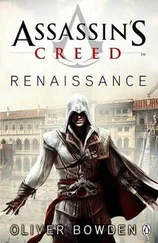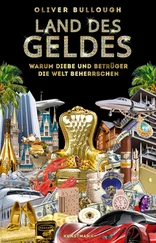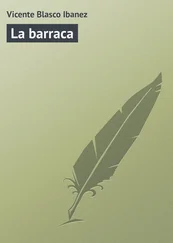Oliver Bleeck - Brass Go-Between
Здесь есть возможность читать онлайн «Oliver Bleeck - Brass Go-Between» весь текст электронной книги совершенно бесплатно (целиком полную версию без сокращений). В некоторых случаях можно слушать аудио, скачать через торрент в формате fb2 и присутствует краткое содержание. Город: New York, Год выпуска: 1969, Издательство: William Morrow, Жанр: Детектив, на английском языке. Описание произведения, (предисловие) а так же отзывы посетителей доступны на портале библиотеки ЛибКат.
- Название:Brass Go-Between
- Автор:
- Издательство:William Morrow
- Жанр:
- Год:1969
- Город:New York
- ISBN:нет данных
- Рейтинг книги:3 / 5. Голосов: 1
-
Избранное:Добавить в избранное
- Отзывы:
-
Ваша оценка:
- 60
- 1
- 2
- 3
- 4
- 5
Brass Go-Between: краткое содержание, описание и аннотация
Предлагаем к чтению аннотацию, описание, краткое содержание или предисловие (зависит от того, что написал сам автор книги «Brass Go-Between»). Если вы не нашли необходимую информацию о книге — напишите в комментариях, мы постараемся отыскать её.
Brass Go-Between — читать онлайн бесплатно полную книгу (весь текст) целиком
Ниже представлен текст книги, разбитый по страницам. Система сохранения места последней прочитанной страницы, позволяет с удобством читать онлайн бесплатно книгу «Brass Go-Between», без необходимости каждый раз заново искать на чём Вы остановились. Поставьте закладку, и сможете в любой момент перейти на страницу, на которой закончили чтение.
Интервал:
Закладка:
“This is St. Ives,” I said.
“Yes, Mr. St. Ives,” she said, “I’ve been in touch with Mr. Spencer and he would very much like a progress report tomorrow. Would you be free at eleven o’clock?”
“Yes, I’ll be free but I don’t believe I’ll have much progress to report.”
“Nevertheless, Mr. Spencer would like a full accounting of recent developments. You needn’t mention that the police suspect that my husband engineered the theft. I’ve already told Mr. Spencer about that.”
“What did he say?”
“I scarcely think that’s any concern of yours, Mr. St. Ives. I’ll expect you in my office at eleven tomorrow. Good night.”
She hung up before I could tell her that I’d misplaced a quarter of a million dollars’ worth of the museum’s money. It was something I should have mentioned, but then I’ve always been one to postpone unpleasantness whenever possible. Tomorrow at eleven would be soon enough when Mr. Winfield Spencer came to town with his barber-college haircut and his billion-dollar checkbook. I could tell both of them then and I could almost feel Spencer’s cold green eyes boring a new hole in my head.
I called down for some ice and after it came I wrapped some of it in a towel and gently applied it to the swelling which throbbed in sharp staccato bursts of pain. I wondered if I had a concussion and tried to remember some of the symptoms. Double vision; for one. I also tried to remember whether liquor was good for a concussion and quickly convinced myself that it was. I poured a large portion into a bathroom glass, added some ice, took a reassuring swallow, and was quite set to take another when the phone rang. I picked it up and said hello.
“Mbwato, here,” the familiar deep voice said. “How are you this evening, Mr. St. Ives?”
“Not too well,” I said.
“Really. What’s wrong?”
“Just a headache.”
“Possibly brought about by nervous tension resulting from the unexpected loss of a rather large sum of money, hmmm?” And then he laughed for what seemed to be a very long time while I stood there and clutched the phone, somehow afraid that he might hang up in my ear.
When he was through laughing I said, “How did you—”
“How did I know?” he interrupted, chuckling a little, far down in his stomach. “Forgive me if I seem happy, but I think I am very close to regaining the shield for my country and when a Komporeenean is happy and successful, he likes to laugh.”
“About the money,” I said.
“Of course, of course. Its loss must be your immediate concern.”
“It does bother me a little.”
“Be bothered no more, Mr. St. Ives. Your money is safe and — uh — uh—”
“Sound,” I said.
“That’s it, sound. Strange how some clichés seem to evade one for the moment.”
“Where is it safe and sound, Mr. Mbwato?” I said as my grip on the phone threatened to crack it.
“Why with me, of course,” he said, and sounded a trifle surprised, even miffed, as if I’d questioned his legitimacy. “Would you like it back?” And the way he said it there was real candor, even wonder, in his tone.
“Yes, now that you mention it,” I said. “I would.”
“Then you shall have it. Can you come to this address?” And he gave me an address on Corcoran Place, between Q and R Streets.
“I’ll catch a cab,” I said.
“Oh, by the way, Mr. St. Ives,” Mbwato said.
“What?”
“I have something else that might be of interest to you.”
“What?”
“I have the two thieves.”
Chapter eighteen
It was a three-story row house on Corcoran Place, a narrow, one-way street running east. More properly, I suppose, it should have been called a town house because someone had gone to a lot of expense to remodel it. The brick veneer was painted an antique white and the woodwork was trimmed in flat black. One of those stagey-looking gas lamps burned outside. I paid the cab driver, walked up seven steps, and pushed a button. Nothing happened for almost a minute and then a light went on in what I assumed to be the hall. The door opened a crack while an eye peered out at me and then it opened wide. It was the slim, dark Mr. Ulado, looking almost naked in shirt sleeves.
“Come in, Mr. St. Ives,” he said. “I’m sorry I was so long in opening the door, but we’re up on the third floor.”
I went in and found myself in a hall that had a floor of random width pine planking that was polished to high gleam. There were a few paintings on the wall, a couple of pieces of good furniture that someone with money and taste might place in a hall, and some stairs. Mr. Ulado headed for the stairs. I followed him.
“This house,” he said, “belongs to an American friend of Mr. Mbwato’s who sympathizes with our cause. He and his wife are on holiday in Europe this summer and he has let us use his house as our Washington headquarters. It’s a most convenient location, don’t you think?”
I told him that I thought it was fine.
The carpeting on the stairs ran out on the third flight. The remodeling apparently had not risen above the second floor. There was a small landing and a door at the top of the third flight. Mr. Ulado pushed the door open and then stood to one side to let me enter. I went in and found myself in a large room that was illuminated by a single, naked bulb that hung by a cord from a fixture in the ceiling. Underneath the bulb were two straight wooden chairs and in the chairs, their backs to me, were a man and a woman. Their hands were tied to the backs of the chairs with what looked to be clothesline. Mbwato, down to shirt sleeves, stood in front of the man and the woman, staring at them as he rocked back and forth a little on his toes, his hands on his hips. He looked up when I came in.
“Mr. St. Ives, how nice,” he said, and managed to make it sound as if I were the late but honored guest at the Embassy reception. “You made good time.”
“I had an incentive,” I said. “Two hundred and fifty thousand dollars’ worth.”
“Oh, yes, the money.” He looked around the room vaguely. “It’s over there, I believe,” and he pointed to the left side of the room. The suitcase sat under a window, casually, as if someone who had just come back from a trip had placed it there because he wanted to rest a moment before unpacking.
“Thank you,” I said. It was without doubt the most inadequate phrase I’d ever uttered.
Mbwato waved a huge hand, dismissing my thanks. “Think nothing of it. Come meet our two thieves. My word, but they’re being most uncooperative.”
I walked over to Mbwato, stood at his side, and looked down at the pair. The man was about thirty, I guessed, black-haired with long sideburns. He wore a navy turtleneck shirt with long sleeves, black slacks, and black shoes. He stared up at me with hazel eyes that had an oriental cast to them, made even more pronounced by his high cheekbones. Thin, almost colorless lips made a line underneath a sharply pointed nose. There was nothing in his face that I could see other than a kind of animal awareness that can be found in a hustling shoe clerk or a crafty checker-outer at a supermarket.
The woman, or girl, I suppose, was not much over twenty-two, if that. She wore dark slacks and a turtleneck shirt that matched her friend’s. Her hair was long and straight and either brown or blond, depending on which streak you looked at. Blue eyes, an ordinary nose, and a sullen mouth did nothing to set her off from the run-of-the-mill, the not pretty, not plain girls for whom the word average was invented.
“This,” Mbwato said, indicating the man, “is Jack. And this is Jill. That’s all they’ve told us thus far, but I’m sure they’ll become more cooperative as time passes.”
Читать дальшеИнтервал:
Закладка:
Похожие книги на «Brass Go-Between»
Представляем Вашему вниманию похожие книги на «Brass Go-Between» списком для выбора. Мы отобрали схожую по названию и смыслу литературу в надежде предоставить читателям больше вариантов отыскать новые, интересные, ещё непрочитанные произведения.
Обсуждение, отзывы о книге «Brass Go-Between» и просто собственные мнения читателей. Оставьте ваши комментарии, напишите, что Вы думаете о произведении, его смысле или главных героях. Укажите что конкретно понравилось, а что нет, и почему Вы так считаете.
